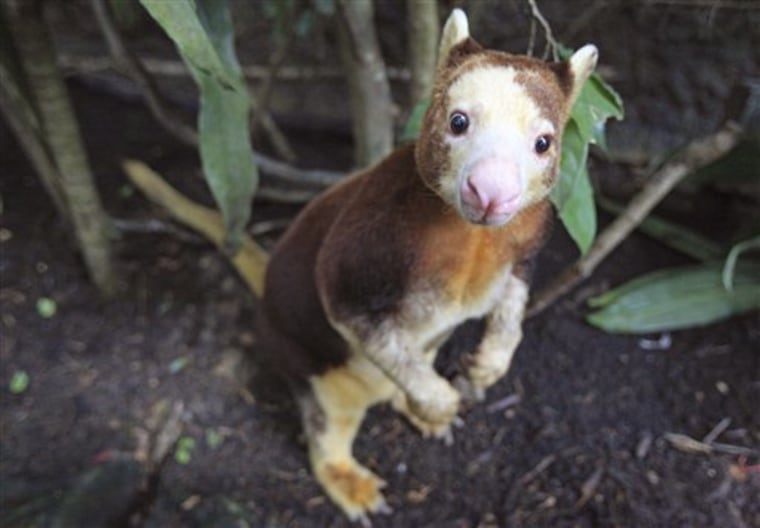Papua New Guinea has created a nearly 190,000-acre preserve to protect tree kangaroos and other endangered species, after years of criticism for turning a blind eye to environmental issues, a conservation group said Tuesday.
The Pacific island nation, where illegal logging is rampant, has recently tried to overhaul its image in the conservation community, taking the lead on such issues as getting tropical forest protections included in a U.N. climate pact.
The plan for a conservation area stemmed from an unusual agreement between the government and 35 indigenous communities to protect the 187,800 acres of remote tropical forest, coastal reefs and mountains on the island of New Guinea.
Leaders representing the 10,000 villagers living in the YUS Conservation Area, named for the Yopno, Uruwa and Som rivers that run through it, have agreed to prohibit hunting, and development such as logging and mining. In exchange, the Seattle-based Woodland Park Zoo and the Virginia-based Conservation International will provide as much as $2 million for health and education programs.
"By creating the country's first national conservation area, the PNG government and people have established a much-needed safe zone for the irreplaceable biodiversity it contains," said Lisa Dabek, the field conservation director at the Woodland Park Zoo and one of the world's top experts on the tree kangaroo.
Dabek and other researchers said the agreement would go a long way toward ensuring the survival of the Matschie's tree kangaroo, a leaf-eating mammal the size of a raccoon that looks like a cross between "a bear, kangaroo, koala and monkey."
"They are completely adapted to living in the rain forest and trees, which is not what you think of when you think of kangaroos," said Dabek. He has spent more than 20 years studying the animal, which is found only on the island but is related to tree kangaroos found in Australia.
Other rare species in the area include the long-beaked echidna — an egg-laying mammal that looks a bit like a hedgehog — and the Huon Astrapia, a bird of paradise.
Quarter of rain forest impacted
Until now, their habitat was under significant threat. A study last year in the journal Biotopica found that nearly a quarter of Papua New Guinea's rain forest had been damaged or destroyed between 1972 and 2002 — mostly due to illegal logging to extract timber that is made into flooring and furniture in Chinese factories and sold in the United States and Europe.
But many of Papua New Guinea's forests, including the new reserve, are still untouched, and researchers have hope the unique arrangement will find success.
Unlike government-run parks that often exist in name only in many parts of Asia, the land committed for the project is all owned by local clans. Conservationists are counting on the locals to bring a unique commitment to protecting their homes.
Researchers said the reserve is also a good first step toward reducing global emissions: The trees in the reserve absorb 13 million tons of carbon each year while deforestation globally represents about 20 percent of carbon emissions.
"Hopefully, other tropical forest nations will follow this example of simultaneously combating climate change and conserving the ecosystems on which people depend," Conservation International President Russell Mittermeier said in a statement.
Conservation International said the agreement has been approved by the government. A spokesman for the prime minister's office did not respond to a request for comment Monday.
